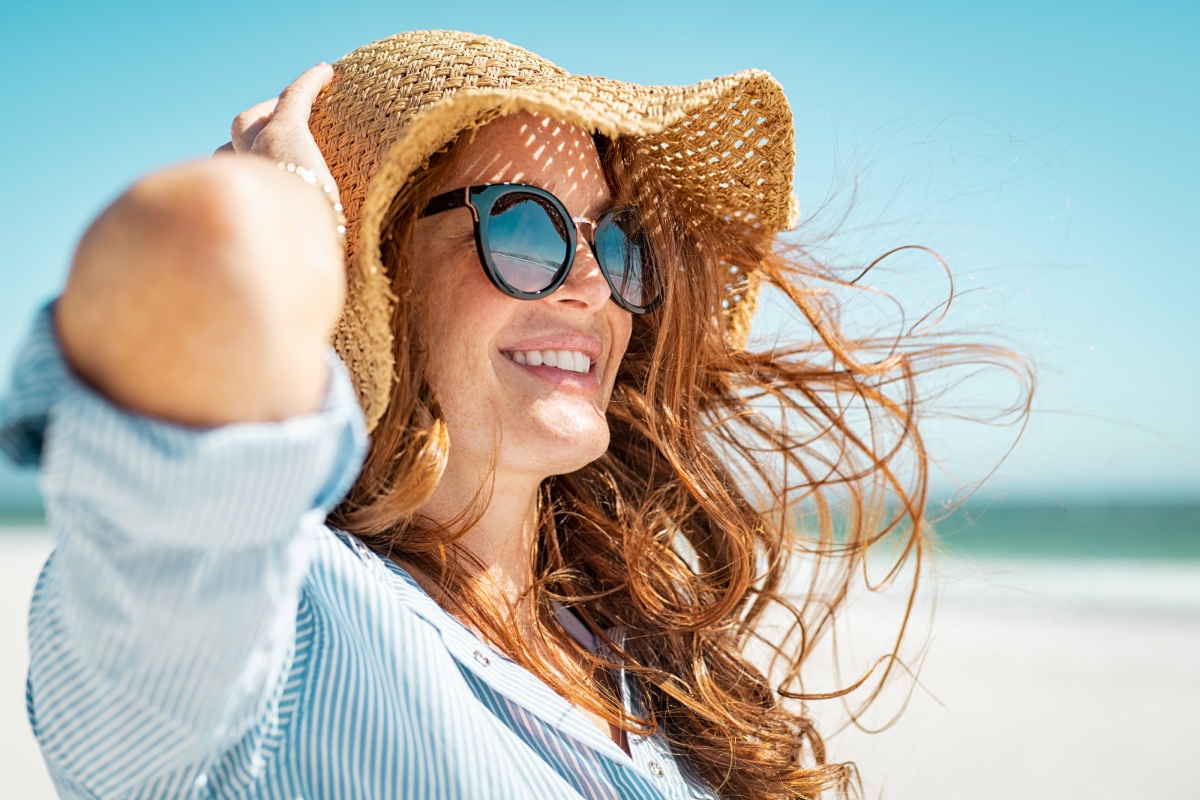We all know the importance of protecting our skin from the sun, but what about our eyes? UV rays can cause serious eye problems and even lead to vision loss. That’s why wearing proper eye protection is crucial when spending time outdoors. Let’s look at how the sun’s UV rays can affect your eye health and what you can do to protect your eyes.
What are the risks of prolonged UV exposure on your eyes?
Exposure to UV radiation increases your risk of developing a number of eye problems and diseases, such as:
1. Cataracts
UV radiation can damage the proteins in the lens of the eye, leading to the formation of cataracts. Cataracts can cause cloudy vision and even blindness if left untreated.
2. Macular degeneration
UV radiation can also contribute to the development of macular degeneration. This occurs when the central part of the retina (the macula) deteriorates, leading to vision loss.
3. Pterygium
Pterygium is a growth that can form on the white part of the eye (sclera) and extend onto the cornea. UV radiation is one of the leading causes of pterygium.
4. Photokeratitis
Photokeratitis is a painful condition that occurs when the cornea is exposed to high levels of UV radiation, such as from a welder’s torch or snow reflection. It is sometimes called “snow blindness” or “welder’s flash.”
5. Conjunctival cancer
Conjunctival cancer is a type of eye cancer that can develop on the conjunctiva, the thin, clear tissue that covers the white part of the eye. UV radiation exposure is one of the leading risk factors for conjunctival cancer.
How can you protect your eyes from UV radiation?
The good news is that there are several things you can do to protect your eyes from UV radiation. Here are some tips:
- Wear sunglasses: Wearing sunglasses with UV protection is one of the best ways to protect your eyes from UV radiation. Look for sunglasses that block 100% of both UVA and UVB rays.
- Wear a hat: A wide-brimmed hat can also help to protect your eyes from UV radiation. It also helps shield your face and neck from sun damage.
- Use UV-blocking contact lenses: If you wear contact lenses, you can choose lenses that block UV radiation. However, keep in mind that UV-blocking contact lenses do not cover your entire eye, so you still need to wear sunglasses as well.
- Avoid the midday sun: The sun’s rays are strongest between 10 am and 4 pm, so try to stay inside during these hours. If you do go outside, make sure you’re wearing sunglasses and a hat!
- Schedule regular eye exams: Lastly, make sure you schedule regular eye exams to keep your eyes healthy and happy. Regular eye exams can detect any eye problems early and help prevent irreversible damage from harmful UV radiation. Your eye doctor can also advise you on the latest treatments and best practices for eye protection.
Protecting your eyes from UV rays is essential for maintaining clear vision and preventing eye problems. Whether you’re spending the day at the beach or just going for a walk, always make sure you have 100% UV protection sunglasses and take other steps to reduce UV exposure. If you need help choosing the best sunglasses or have any eye health concerns, contact us today to schedule an eye exam at our office in Gonzales!

